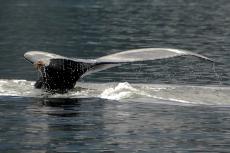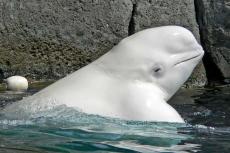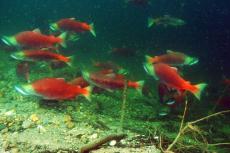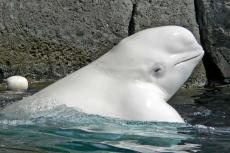Manitoba works to save beluga population
Canadian province billed as world beluga capitol
Manitoba has released a plan to preserve the world's largest beluga population while numbers remain abundant. "We have a healthy population, but the environment is changing," said Manitoba Conservation Minister Tom Nevakshonoff. "It's a rare opportunity when you can take something that's not in distress and focus on it now to preserve that rather than doing damage control.
"During summer, approximately 60,000 belugas migrate along the Hudson Bay coast, stopping where the Churchill, Nelson and Seal rivers flow into the bay to feed, give birth and nurture their young. "When belugas are in those estuaries, you're not just seeing a beluga in there sporadically," said Chris Debicki of the Pew Charitable Trusts' Oceans North Canada. "You're literally seeing hundreds and sometimes thousands of belugas at the same time."
Federal assistance sought
Assisting the province with the plan is the environmental group Oceans North Canada. The plan referred to as a "discussion document," involves protecting sections of coastline as well as the outflow area of the Seal River. The province is also requesting for Ottawa to extend the Arctic Waters Pollution Protection Act, which prohibits the discharge of shipping waste, to encompass the waters off the mouths of the three rivers. It also desires the Liberal government to consider the area for its National Marine Conservation Area program.
Although the Nelson and Churchill rivers have been heavily affected by hydro development, the belugas have adapted well, co-existing with current shipping levels out of the port of Churchill. However, the plan does note that future noise from ships and port activities could affect the whales in the wake of increased traffic. Tourist boat traffic could also be a concern.
$6 million a year
South Hudson Bay has lost sea ice faster than almost anywhere else in the North. As a result, local orca numbers, which prey on belugas, are increasing. According to Debicki, the plan emphasizes the need for research, as little is known about beluga migration routes, winter habitat or how they use the estuaries. He also praised the province for proposing a conservation plan before problems arise. “It’s really important when we're considering future development on those rivers that beluga remain on the radar." Belugas are worth almost $6 million a year in eco-tourism to Churchill.
- Log in to post comments














































